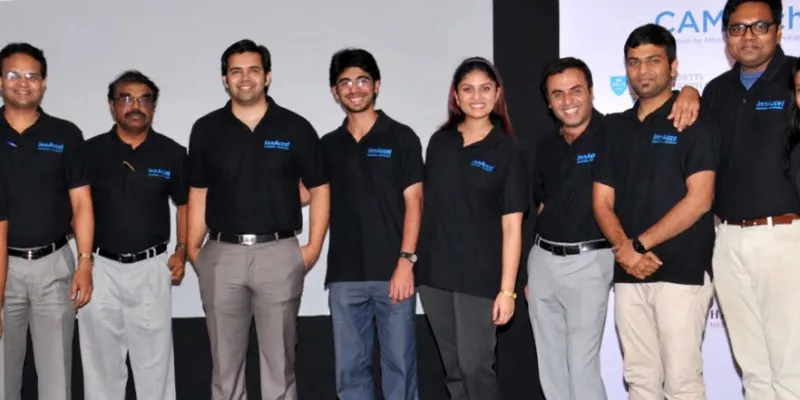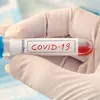Coronavirus: This medtech startup's critical care device can save ventilated patients, frontline workers
Nearly a third of coronavirus deaths have been linked to ventilator-induced infections. Medtech startup InnAccel has built unique solutions to address this.
If you’ve followed conversations around the coronavirus crisis, you’d know that the medical fraternity has been highlighting a critical issue: the dearth of ventilators in hospitals across the world.
No ICU is adequately equipped and no country has been able to match demand with supply. Also, ventilators are highly expensive medical infra.
Most developing countries with low public health expenditure do not have the capacity to acquire them at a large scale. Put simply, the crisis is unprecedented, and nearly unmanageable. With COVID-19 cases crossing two million, it will only intensify.
Interestingly, the medical fraternity has also made another critical observation related to ventilators and their use in COVID-19 care.
Clinical researchers estimate that almost 31 percent of COVID-19 deaths in China were linked to Ventilator-Associated Pneumonia (VAP), which is a pulmonary infection in ICU patients that leads to high mortality.

Moreover, the COVID-19 crisis has witnessed an alarmingly high rate of caregiver infections. Almost 25 percent of nurses and doctors have been infected due to their exposure to oral and nasal secretions of patients. Many have even succumbed to it.
Enter VAPCare, a first-of-its-kind automated and closed system for the clearance of highly infectious oral secretions in ventilated COVID-19 patients.
The device replaces the process of manual suction of secretions with a mechanised and protected system, thereby minimising the healthcare worker’s exposure to the risky and contagious fluids.
By automating a largely manual step, VAPCare also saves nursing hours — up to 90 minutes per patient per day — which comes in handy at a time when the global healthcare industry is strapped for resources.
Naturally, the demand for a product like this has surged after COVID-19.

Stepping up critical care in COVID-19
Designed, developed, and manufactured by Bengaluru-based medtech startup InnAccel, VAPCare is already in clinical trials across 20 Indian hospitals, including AIIMS, Safdarjung, Ram Manohar Lohia, and state-owned medical units in Karnataka, Andhra Pradesh, and Delhi.
It has also earned approvals and patents in the US, Europe, China, and Japan, and is likely to be shipped globally in a few months.
Siraj Dhanani, Founder and CEO, InnAccel tells YourStory,
“VAPCare is a made-in-India innovation. The system is technically complex, and it took us four years to develop, design, test, and get approvals. It is a closed loop system that saves both the healthcare worker and the environment.”

Siraj Dhanani, Founder and CEO, InnAccel
VAPCare weighs about 1.5 kilograms, and comes with intelligent sensors that identify secretion levels in the oral cavity, detect blockages and other anomalies in individual patients, and raise alarms when required.
Doctors and nurses in the ICU can set the frequency and pressure of suctioning, depending on the patient's clinical condition.
The device has an automated antibacterial mouthwash, which releases every four hours. InnAccel is also building a teeth brushing system in it. “Our goal is to take the healthcare workers away from the patient’s oral cavity in an infectious disease scenario like COVID-19,” says the founder.
InnAccel shares that the listed price for VAPCare is Rs 14 lakh per unit; each unit can serve thousands of patients in a hospital. “But the pricing varies on volumes, warranties, and other factors,” Siraj reveals.

The startup clarifies that VAPCare isn’t a ventilator replacement, but “a companion device” that can bring down the rate of ICU infections. It plans to manufacture a batch of 60 to 80 units later this month, and scale that up to 300 to 500 units by May.
Siraj says,
“We are in talks with state governments to deploy VAPCare in ICUs, and are working with large buyers to establish value and create demand. But the initial focus in COVID-19 has been on PPEs, masks, etc. Once the ICU volumes increase, we will ramp up manufacturing.”
Device for non-invasive ventilation
Earlier in April, InnAccel launched SAANS Pro, a non-invasive ventilation device for COVID-19 patients. It is an upgrade to its existing SAANS device used in neonatal care. (SAANS means ‘breath’ in Hindi.)
SAANS Pro comes with a helmet interface, which prevents the infection from being transmitted to the caregiver. It stays within the helmet, which is disposed or sterilised later, instead of being passed on to the environment.
The device is equipped with features typically required in an ICU – pressure control, flow control, oxygen blending, and inbuilt compressed oxygen supply. Most importantly, it is portable and can function without electricity.

It can also be used to safely transport patients from one centre to another, even in private vehicles, and is built in a way that allows even medical staff with minimal training to use it.
The founder explains,
“Usually, intubation is a complicated process, which needs trained respiratory therapists. SAANS Pro can be used to stabilise a patient with only 20 minutes of training. When you have infrastructure and resource limitations like in COVID-19, it can be very effective.”
InnAccel is bullish about the product because global health authorities like WHO are increasingly recommending the use of non-invasive devices as a “bridge to ventilation” i.e one step before ventilation in COVID-19 cases “It can also bring down chances of lung damage in patients," says Siraj.
The prototype is currently being tested by doctors. InnAccel's homegrown manufacturing capacity can produce 5,000 units of SAANS Pro per month. Each unit is priced at Rs 4-5 lakh. “We just need a lead time of four to six weeks,” says the founder.

Operational growth and path ahead
InnAccel (short for ‘Innovation Accelerated’) was founded in 2015, with the goal of identifying unmet healthcare needs in India, and developing globally certified medical devices for all emerging markets.
It follows the Stanford Biodesign Process to identify and validate these clinical needs.
In four years, the 22-member startup has engineered and released seven novel medical devices focused on critical care, maternal and neonatal care, and ENT. Each device addresses a condition that causes a million deaths in India per year.
“We have largely been a promoter-funded effort to create medical assets out of India. We’re very proud of having built global standards in healthcare out of India. We’re now looking to raise a round of institutional capital to make use of the COVID-19 opportunity," Siraj shares.

InnAccel team
InnAccel has received small funds from undisclosed angel investors prior to this.
It operates in a medical device market valued at more than $5 billion, and estimated to grow exponentially in the wake of COVID-19. Both private and public players are expected to ramp up investments in R&D and innovation.
“COVID-19 is a lot more impactful than just the disease. It will give a huge step-up to healthcare infrastructure because we have been totally unprepared to deal with any kind of emergency until now,” Siraj notes.
Given India’s abysmal patient-to-ventilator ratio, increased health expenditure is the need of the hour!
(Edited by Teja Lele Desai)











